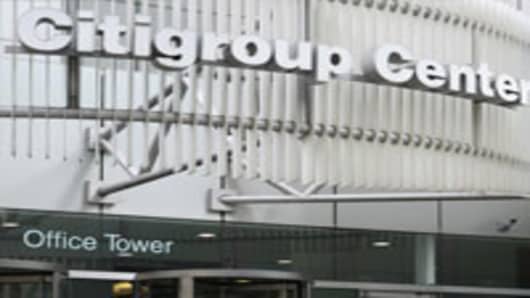Citigroup has agreed to merge its Smith Barney brokerage unit into Morgan Stanley's brokerage operations, the first step in ultimately shedding Smith Barney and a move away from the financial supermarket model that Citigroup has followed for the past decade.
Both Citigroup and Morgan Stanley announced the joint venture after the market closed. The agreement was first reported by CNBC.
Under the deal, Morgan Stanley will control 51% of the joint venture with the right to increase its share in future years.
The deal will create the nation's largest brokerage firm, with more than 20,000 financial advisers, compared to the 16,000 at the Merrill Lynch subsidiary of Bank of America .
Citigroup will get $2.7 billion in much-needed capital up front from the deal. It will also mark the first step toward the breakup of the massive investment bank, which is under pressure to raise capital to stem losses. Citigroup is expected to announce another massive loss for its fourth quarter.
As reported earlier Tuesday, Citigroup CEO Vikram Pandit plans to announce in the coming days a major shift away from the "financial supermarket" model that has guided the bank for the last decade.
Video: CNBC's Charlie Gasparino discusses Citi's agreement with Morgan Stanley.
The breakup of the supermarket model—in which a bank handled a client's every financial need, from investing to insurance—would mean that Citigroup would become more of a traditional bank like JP Morgan Chase .
The core of the remaining company would be a global wholesale bank with some investment banking capability and include private and regional banking.
- Get After-Hour Quotes for Citigroup and Morgan Stanley
Citigroup's former CEO Sandy Weill developed the financial supermarket model in 1998 when he fought successfully to allow the merger of Travelers with Citibank.
The merger circumvented the Depression-era Glass-Steagall Act that separated commercial and investment banking and helped pave the way for the banking behemoths that have been crumbling during the credit crisis. Glass Steagall was repealed in 1999.
The dismantling of Citigroup's supermarket model is being made under pressure from the federal government, which has loaned Citigroup $45 billion in recent months and agreed to absorb the losses on a huge pool of mortgages and other assets.
—Reuters contributed to this report.


